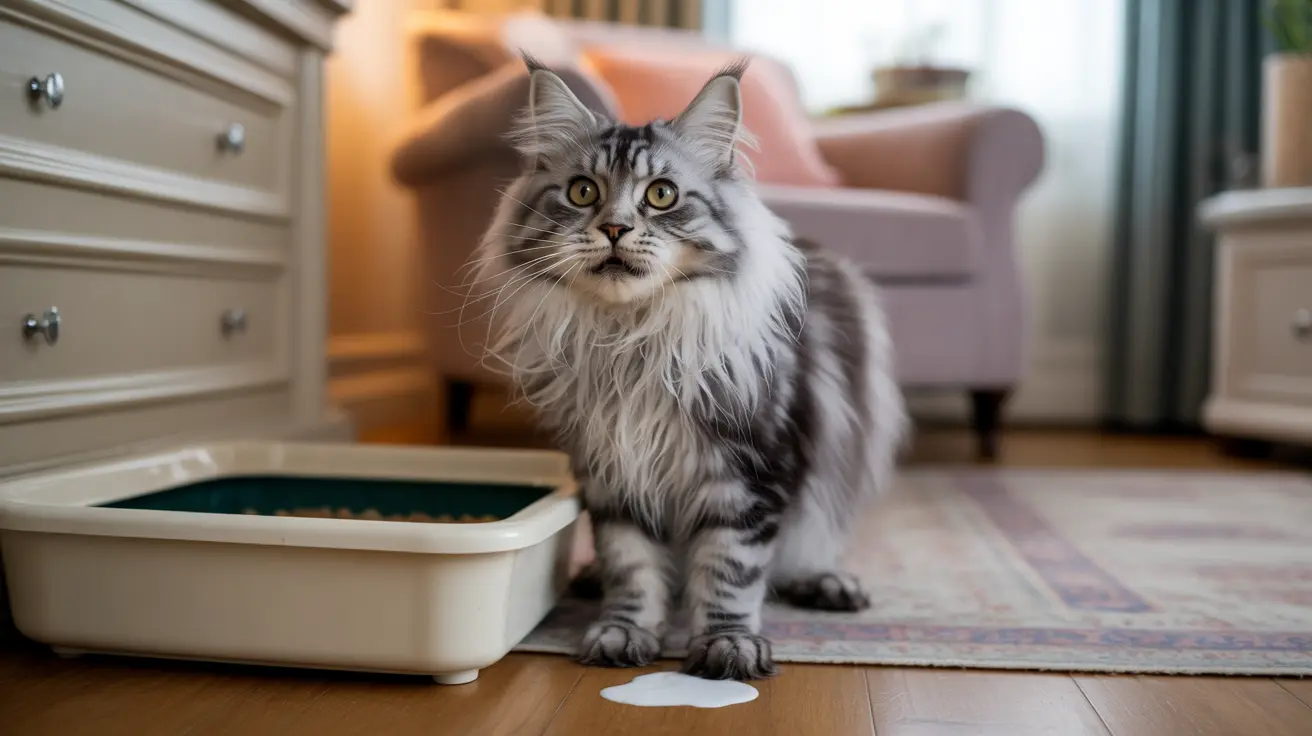When your cat starts peeing in random places around your home, it can be both frustrating and concerning. This behavior isn't just a simple act of defiance – it often signals underlying health issues, emotional distress, or environmental problems that need attention. Understanding why cats exhibit this behavior and how to address it effectively is crucial for both your pet's wellbeing and your home's cleanliness.
In this comprehensive guide, we'll explore the various causes of inappropriate urination in cats, from medical conditions to behavioral triggers, and provide actionable solutions to help resolve this common feline problem.
Medical Conditions That Cause Random Urination
Medical issues are often the primary reason cats begin urinating outside their litter box. Urinary tract infections (UTIs), bladder stones, and kidney disease commonly trigger this behavior. If your cat suddenly starts peeing in unusual places, a veterinary examination should be your first step.
Conditions like diabetes and hyperthyroidism can also lead to increased urination and litter box avoidance. Male cats are particularly susceptible to urethral blockages, which can become life-threatening if not treated promptly.
Signs of Medical Issues to Watch For
Look for these warning signs that may indicate a medical problem:
- Frequent attempts to urinate
- Blood in the urine
- Crying while urinating
- Excessive water consumption
- Unusual lethargy or loss of appetite
Environmental and Behavioral Causes
Once medical issues are ruled out, environmental and behavioral factors often explain random urination. Cats are sensitive creatures, and changes in their environment can trigger stress-related elimination problems.
Stress Triggers and Solutions
Common stress factors include:
- New pets or family members
- Moving to a new home
- Changes in routine
- Loud noises or construction
- Conflict with other household pets
Optimizing Litter Box Setup
Proper litter box management is crucial for preventing inappropriate urination. Follow these essential guidelines:
Location and Accessibility
- Place boxes in quiet, easily accessible areas
- Provide one box per cat plus an extra
- Keep boxes away from food and water dishes
- Ensure elderly cats can easily enter and exit
Maintenance and Cleanliness
- Scoop boxes daily
- Deep clean boxes weekly
- Replace litter regularly
- Use unscented, cat-preferred litter
Solutions and Treatment Approaches
Addressing random urination requires a multi-faceted approach:
Medical Treatment
- Follow veterinary prescribed medications
- Maintain regular check-ups
- Monitor water intake and urination patterns
Behavioral Modification
- Use pheromone diffusers to reduce stress
- Provide environmental enrichment
- Maintain consistent daily routines
- Create safe spaces and hiding spots
Frequently Asked Questions
Why is my cat peeing in random places instead of the litter box?
Cats may pee in random places due to medical conditions like UTIs, stress, litter box aversion, or territorial marking. A veterinary check-up is recommended to rule out health issues before addressing behavioral causes.
Could a urinary tract infection or other medical issue be causing my cat to urinate outside the litter box?
Yes, UTIs and other medical conditions are common causes of inappropriate urination. Signs include frequent urination attempts, blood in urine, and visible discomfort while urinating.
How does stress or changes in the household lead to my cat peeing in unusual spots?
Cats are sensitive to environmental changes. New pets, moving homes, or alterations in routine can cause anxiety, leading to stress-related urination outside the litter box.
What litter box setup and cleaning routines can help prevent my cat from peeing randomly around the house?
Maintain clean litter boxes, provide multiple boxes in quiet locations, use preferred litter type, and clean boxes daily. The rule of thumb is one box per cat plus one extra.
When should I take my cat to the vet if it starts peeing outside the litter box suddenly?
Take your cat to the vet immediately if they suddenly start peeing outside the litter box, especially if accompanied by signs of distress, blood in urine, or changes in behavior. Quick medical intervention can prevent serious complications.
Conclusion
Random urination in cats is a complex issue that requires patience and a systematic approach to resolve. By addressing medical concerns, managing environmental stressors, and maintaining proper litter box conditions, most cases can be successfully resolved. Remember to always consult with your veterinarian for proper diagnosis and treatment planning.






